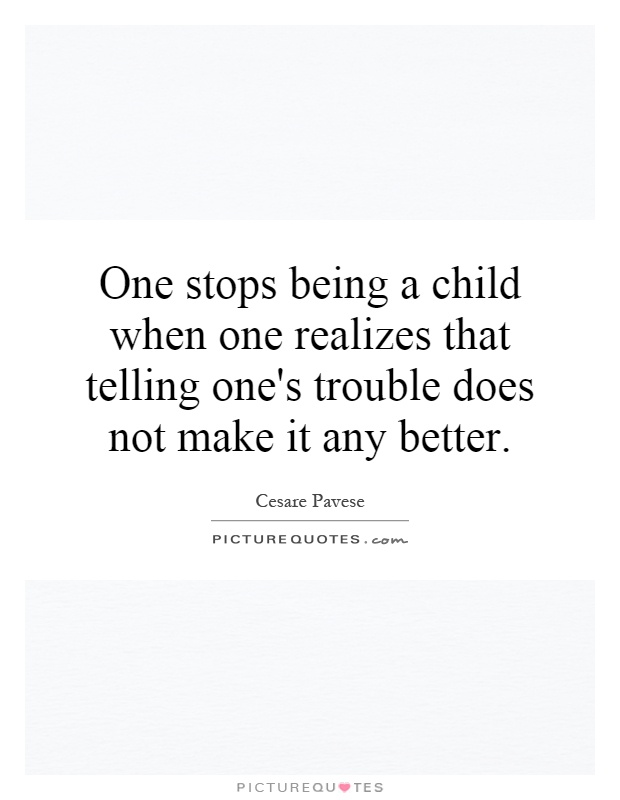One stops being a child when one realizes that telling one's trouble does not make it any better

One stops being a child when one realizes that telling one's trouble does not make it any better
Cesare Pavese, an Italian writer and poet, is known for his profound and introspective works that often explore themes of loneliness, alienation, and the complexities of human relationships. In the context of Pavese's writings, the idea that one stops being a child when one realizes that telling one's troubles does not make them any better takes on a deeper significance.Pavese's characters often grapple with feelings of isolation and despair, seeking solace in their own thoughts and reflections. They are haunted by their pasts, burdened by their regrets, and consumed by their inner turmoil. In this sense, the notion that sharing one's troubles does not alleviate them resonates strongly with Pavese's exploration of the human condition.
For Pavese, the act of confession or sharing one's troubles with others is not a means of finding comfort or resolution, but rather a futile attempt to escape the harsh realities of life. In his novel "The Moon and the Bonfires," the protagonist, a man returning to his hometown after years of exile, grapples with his own sense of displacement and disillusionment. He seeks solace in the memories of his childhood, only to realize that the past cannot erase the pain of the present.
Similarly, in Pavese's poetry, themes of loss and longing are prevalent, as the speaker grapples with the weight of his own emotions and the futility of seeking solace in others. In poems such as "Death Will Come and Have Your Eyes," Pavese explores the inevitability of suffering and the transient nature of human existence. The speaker acknowledges that sharing one's troubles with others may offer temporary relief, but ultimately, one must confront their own pain and find a way to endure it.












 Friendship Quotes
Friendship Quotes Love Quotes
Love Quotes Life Quotes
Life Quotes Funny Quotes
Funny Quotes Motivational Quotes
Motivational Quotes Inspirational Quotes
Inspirational Quotes